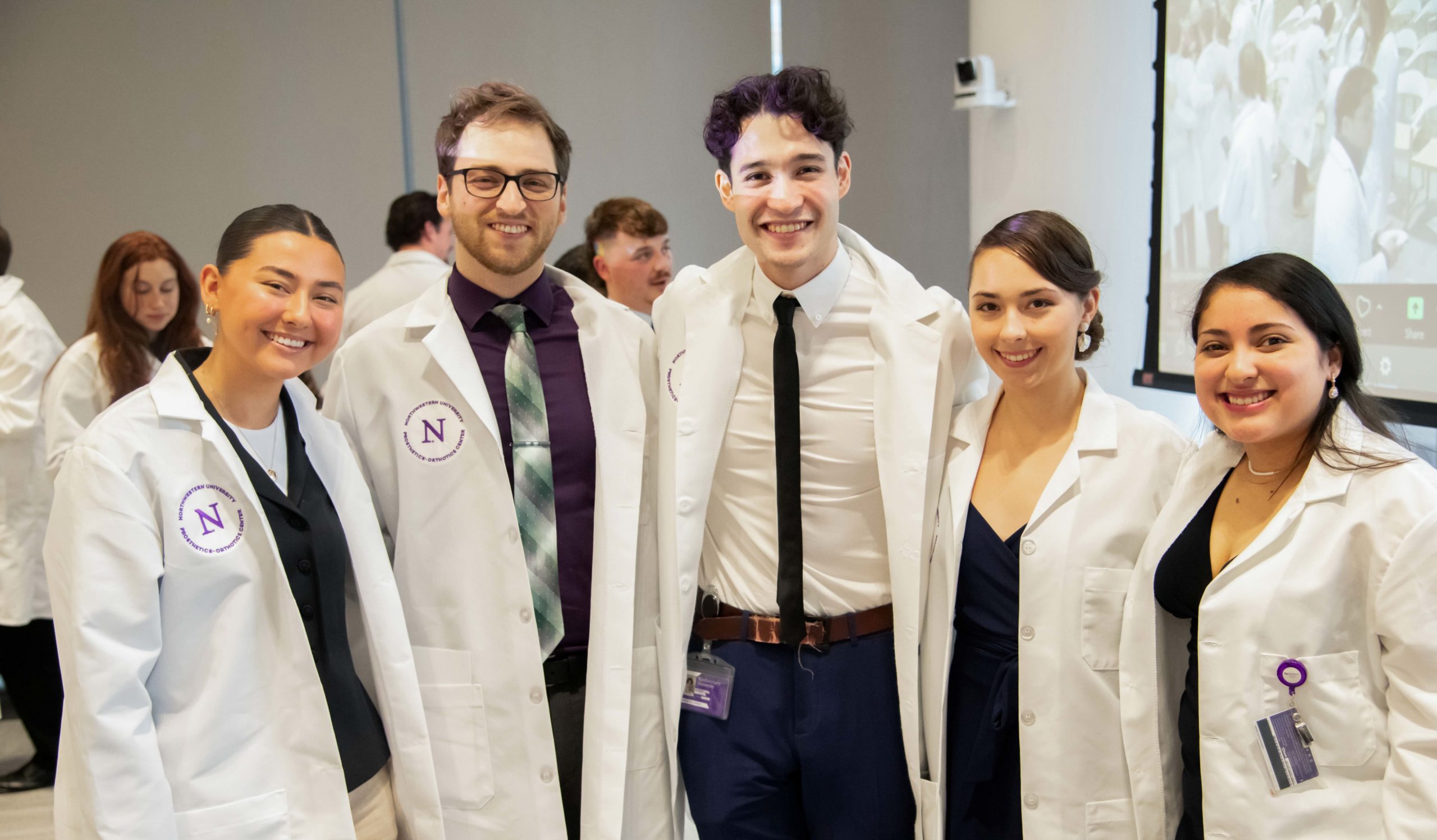-

One Sleepless Night Can Rapidly Reverse Depression for Several Days
Northwestern scientists have discovered the cause of the ‘punch-drunk’ feeling associated with sleep deprivation, and have found that it also increased dopamine and synaptic plasticity in the brain.
-

Developing Custom AI Language Models to Interpret Chest X-Rays
Northwestern Medicine scientists have developed an artificial intelligence (AI) tool able to interpret chest X-rays with accuracy rivalling that of a human radiologist, according to findings published in JAMA Network Open.
-

‘Super Melanin’ Heals Skin Injuries From Sunburn, Chemical Burns
A newly developed synthetic melanin, mimicking the natural melanin in human skin, can be applied topically to injured skin, where it accelerates wound healing.
-

Exploring Transcription Elongation Control in Development, Disease and Aging
In a recent article published in Molecular Cell, the laboratory of Ali Shilatifard, PhD, provided a comprehensive overview of the current understanding of the elongation stage of DNA transcription and how its dysregulation is associated with developmental defects, disease and aging.
-

Novel Therapy Extends Survival in Metastatic Cancer
Northwestern Medicine investigators have identified a novel therapeutic agent that is effective in treating metastatic cancer and brain metastases, according to a recent study published in the Journal of Clinical Investigation.
-

Clements Receives AAFP Family Medicine Award
Deborah Clements, MD, the chair and the Nancy and Warren Furey Professor of Family and Community Medicine, has been honored with the American Academy of Family Physicians’ Thomas W. Johnson Award for her significant contributions to family medicine education.
-

Improving Nanotherapeutic Vaccine Delivery
Northwestern Medicine scientists have developed a more effective way of creating nanotherapeutic vaccines and medicines, according to a study published in ACS Nano.
-

New $24 Million Grant to Measure Child Health Outcomes
Northwestern University has been awarded a $24 million grant to standardize measurement tools used to evaluate childhood health nationwide as part of the National Institutes of Health Environmental influences on Child Health Outcomes (ECHO) Program.
-

Study Identifies Genetic Cause for Some Brain Tumors
Scientists have uncovered a genetic explanation for a subset of common brain tumors, according to a study published in Nature Communications.
-

Developing New Approaches for Spinal Cord Injury
Northwestern Medicine scientists have developed a molecular “scaffold” capable of enhancing electrical activity and growth in neurons, which may prove useful in treating spinal cord injuries, per results published in ACS Nano.
-

Identifying Molecular Culprits Underlying Organ Rejection
Investigators have identified how bacterial infection can alter immune response to precipitate organ rejection in mice, findings which may prove useful for improving transplant tolerance in humans, according to a recent study published in the Journal of Clinical Investigation.
-

Mutations in 11 Genes Linked to Deadly Prostate Cancer
Scientists have linked mutations in 11 genes with aggressive prostate cancer, according to the largest-ever study of its kind recently published in JAMA Oncology.
-

Study Discovers New Subset of Retinal Neurons Impacting Vision
Investigators have discovered a new subtype of interneurons in the retina that allows the eye to see and identify objects better in both the light and in the dark, dismantling previous notions about the inner workings of the retina, according to a Northwestern Medicine study.
-

Combining Immunotherapy and Radiation in Soft Tissue Sarcoma
Combining immunotherapy with radiation may be a promising treatment option for patients with advanced soft tissue sarcoma, according to the results of a Northwestern Medicine clinical trial published in JAMA Oncology.
-

Protein-Like Polymers Illuminate the Path to Macular Degeneration Treatment
A new Northwestern study details the use of protein-like polymers to potentially combat neovascular age-related macular degeneration, a leading cause of blindness.
-

Visual Abstracts in Journal Articles Increase Social Media Engagement, Readership
Social media posts with visual abstracts — images with text and icons that convey a study’s methods and findings — of clinical trials published online in peer-reviewed academic journals increased social media engagement compared to social media posts with article figures, according to a recent research letter published in JAMA.
-

Feinberg Classmates Reconnect at Alumni Weekend 2023
More than 400 alumni and guests convened at the annual Alumni Weekend to reconnect and reminisce with former classmates about their time at Feinberg and learn about the medical school’s latest achievements.
-

Understanding How Sex-Based Differences Impact Health Outcomes
Sex is a major determinant in disease prevalence and treatment response, caused by a vast number of genetic differences between men and women. However, the inclusion of both sexes in clinical and scientific research had not been mandated by federal law until nearly the turn of the century.
-

Syphilis Transmission in U.S. Higher Among Transgender Women and Black Gay and Bisexual Men, Study Finds
Transgender women and Black gay and bisexual men in Chicago are nearly twice as likely to contract syphilis at some point in their lives as white gay men, according to a new study.
-

Pre-Pregnancy Obesity Predicts Future Heart Health
A new Northwestern Medicine study has found obesity before pregnancy is the root cause of future cardiovascular disease, rather than pregnancy complications.
Recent News
-

Protein-Like Polymers Illuminate the Path to Macular Degeneration Treatment
A new Northwestern study details the use of protein-like polymers to potentially combat neovascular age-related macular degeneration, a leading cause of blindness.






